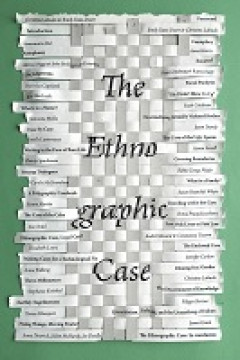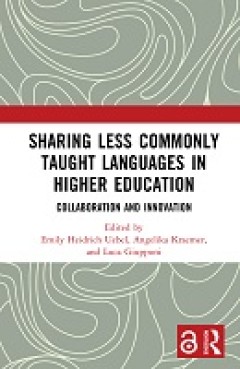Ditapis dengan

E-Book The Ethnographic Case: Second Edition
The 1st Edition of The Ethnographic Case, published in 2017, was an experiment in post-publication peer review, with the book published online and open to comments from readers. In this new 2nd edition, to be published later this year, the editors and authors have updated the text, both in response to these comments and taking into account changing contexts in the years since the book’s first…
- Edisi
- -
- ISBN/ISSN
- 9781912729340
- Deskripsi Fisik
- 258 halaman
- Judul Seri
- -
- No. Panggil
- 301 YAT t
E-book Illustration
As for colours I would say I tend not to use them. I usually focus on black and white images, sometimes with various tones of gray, but when I do use colours I like to use toned down, unsaturated colours to create a more atmospheric feeling in my work.
- Edisi
- -
- ISBN/ISSN
- -
- Deskripsi Fisik
- 54 hlm
- Judul Seri
- -
- No. Panggil
- 741.6 BID i

E-Book Sharing Less Commonly Taught Languages in Higher Education: Collaborat…
This edited volume highlights how institutions, programs, and less commonly taught language (LCTL) instructors can collaborate and think across institutional boundaries, bringing together voices representing different approaches to LCTL sharing to highlight affordances and challenges across institutions in this collection of essays. Sharing Less Commonly Taught Languages in Higher Education sho…
- Edisi
- -
- ISBN/ISSN
- 9781032394176
- Deskripsi Fisik
- 265 halaman
- Judul Seri
- -
- No. Panggil
- 400 HEI s
E-book Lockdown Cultures : The arts and humanities in the year of the pandemi…
April 2020. It had begun as little more than a flicker on a news feed, a tiny spark in a media agenda that was already crackling with the electric charge of a world increasingly divided. But as the Covid-19 crisis began to take hold, with every new outbreak confirming its deadly horror, two opposing phenomena very quickly began to emerge. The first was a kind of global solidarity in…
- Edisi
- -
- ISBN/ISSN
- 9781800083394
- Deskripsi Fisik
- 346 hlm
- Judul Seri
- -
- No. Panggil
- 614.5 BAK l
E-book Interwar Itineraries : Authenticity in Anglophone and French Travel Wr…
Stationed in Alsace in 1939 and 1940, during the so-called phony war [drôle de guerre] that preceded Nazi Germany’s invasion of France, Sartre con-templates the structure of adventurous and gritty travel, pitting it against the seemingly mundane practice of tourism, but ultimately locating an in-delible link between the two. As he describes it, even his attempts to break through th…
- Edisi
- -
- ISBN/ISSN
- 9781943208319
- Deskripsi Fisik
- 233 hlm
- Judul Seri
- -
- No. Panggil
- 809 WIT i

WUTHERING FLEIGHTS: Level - 5
- Edisi
- cet. 1
- ISBN/ISSN
- 0-582-41944-1
- Deskripsi Fisik
- 147 page;13 x 20 cm
- Judul Seri
- -
- No. Panggil
- 823 BRO w
- Edisi
- cet. 1
- ISBN/ISSN
- 0-582-41944-1
- Deskripsi Fisik
- 147 page;13 x 20 cm
- Judul Seri
- -
- No. Panggil
- 823 BRO w

MODEL-MODEL PENGAJARAN
- Edisi
- ed. 8 cet. 1
- ISBN/ISSN
- 978-602-8479-45
- Deskripsi Fisik
- xxi; 637 hlm; illus;21 x 28,5 cm
- Judul Seri
- -
- No. Panggil
- 371.3 JOY m
- Edisi
- ed. 8 cet. 1
- ISBN/ISSN
- 978-602-8479-45
- Deskripsi Fisik
- xxi; 637 hlm; illus;21 x 28,5 cm
- Judul Seri
- -
- No. Panggil
- 371.3 JOY m
 Karya Umum
Karya Umum  Filsafat
Filsafat  Agama
Agama  Ilmu-ilmu Sosial
Ilmu-ilmu Sosial  Bahasa
Bahasa  Ilmu-ilmu Murni
Ilmu-ilmu Murni  Ilmu-ilmu Terapan
Ilmu-ilmu Terapan  Kesenian, Hiburan, dan Olahraga
Kesenian, Hiburan, dan Olahraga  Kesusastraan
Kesusastraan  Geografi dan Sejarah
Geografi dan Sejarah